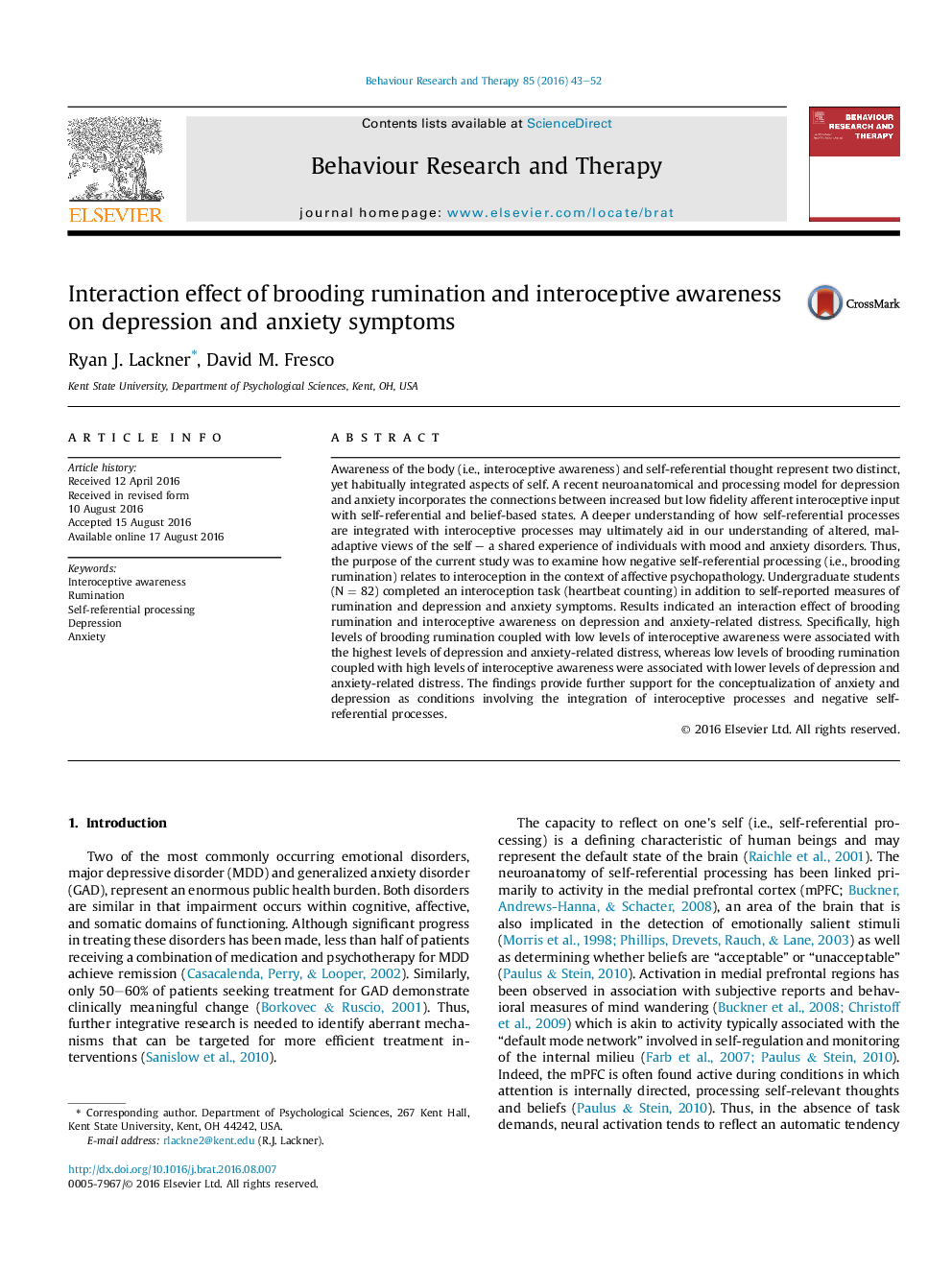| کد مقاله | کد نشریه | سال انتشار | مقاله انگلیسی | نسخه تمام متن |
|---|---|---|---|---|
| 901755 | 1472764 | 2016 | 10 صفحه PDF | دانلود رایگان |
• Rumination moderated the relationship of interoceptive awareness to depression and anxiety symptoms.
• High rumination coupled with low interoceptive awareness was associated with the highest levels of affective symptoms.
• Interoceptive awareness was negatively associated with both depression and anxiety symptoms.
• Supports view of anxiety and depression as involving the integration of interoceptive and self-referential processes.
Awareness of the body (i.e., interoceptive awareness) and self-referential thought represent two distinct, yet habitually integrated aspects of self. A recent neuroanatomical and processing model for depression and anxiety incorporates the connections between increased but low fidelity afferent interoceptive input with self-referential and belief-based states. A deeper understanding of how self-referential processes are integrated with interoceptive processes may ultimately aid in our understanding of altered, maladaptive views of the self – a shared experience of individuals with mood and anxiety disorders. Thus, the purpose of the current study was to examine how negative self-referential processing (i.e., brooding rumination) relates to interoception in the context of affective psychopathology. Undergraduate students (N = 82) completed an interoception task (heartbeat counting) in addition to self-reported measures of rumination and depression and anxiety symptoms. Results indicated an interaction effect of brooding rumination and interoceptive awareness on depression and anxiety-related distress. Specifically, high levels of brooding rumination coupled with low levels of interoceptive awareness were associated with the highest levels of depression and anxiety-related distress, whereas low levels of brooding rumination coupled with high levels of interoceptive awareness were associated with lower levels of depression and anxiety-related distress. The findings provide further support for the conceptualization of anxiety and depression as conditions involving the integration of interoceptive processes and negative self-referential processes.
Journal: Behaviour Research and Therapy - Volume 85, October 2016, Pages 43–52
